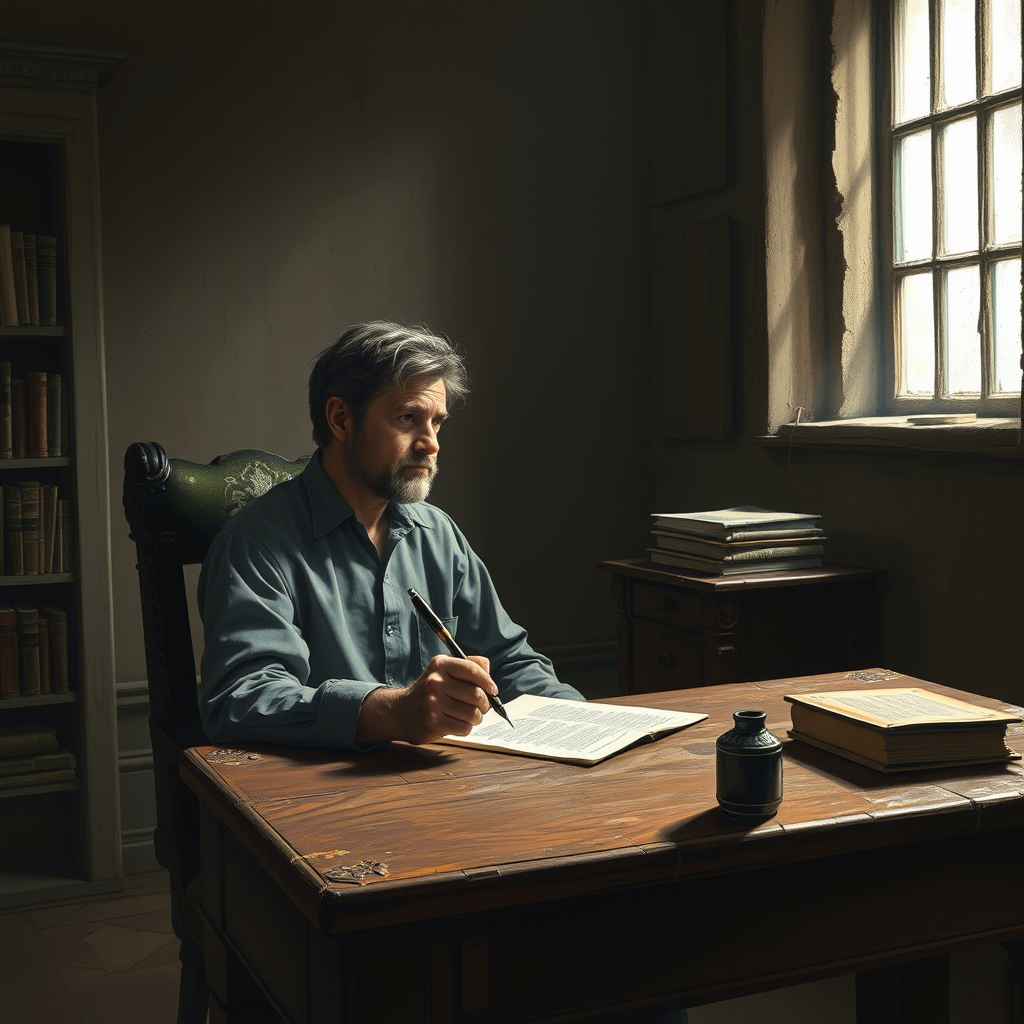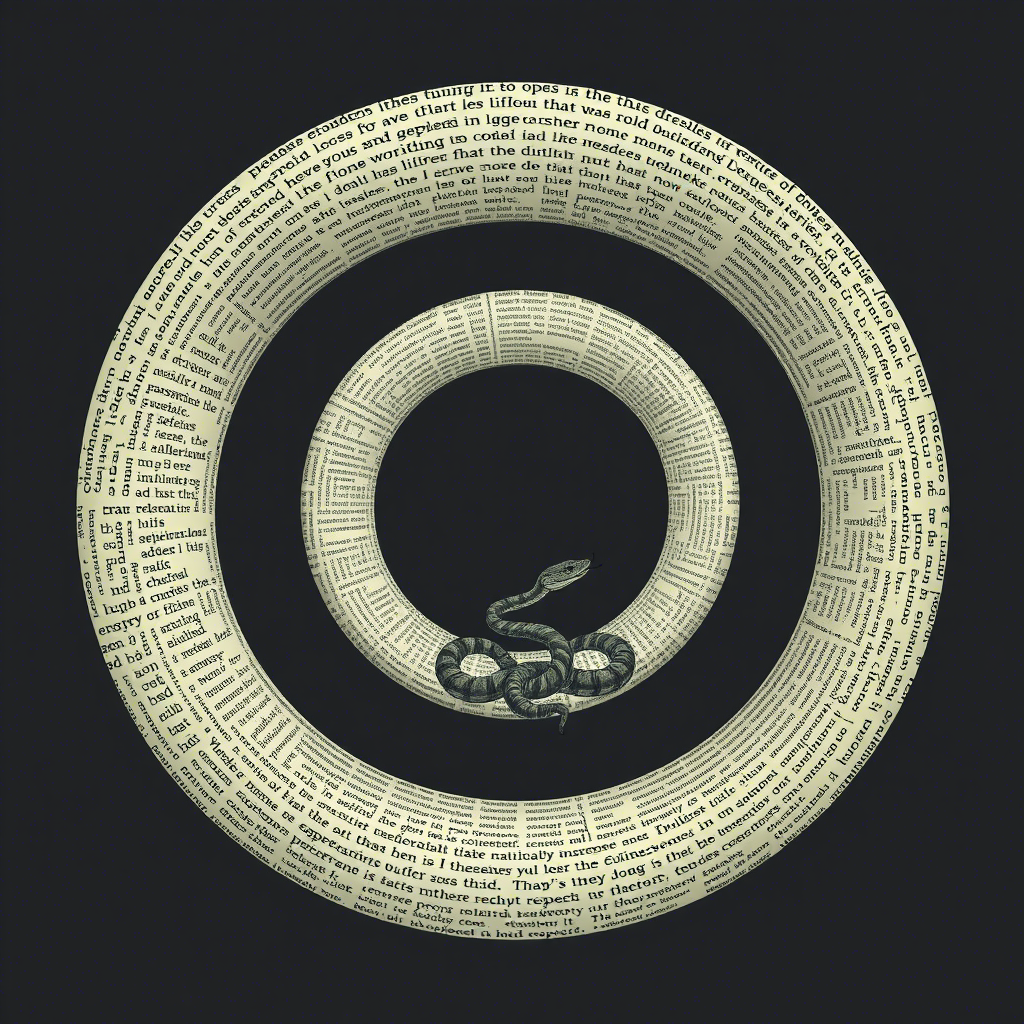
Chapter I: The First Word
In the beginning was the word—or so they say—but what if the word itself began long before anyone spoke it? What if every syllable we utter is merely an echo of something far older, a ripple in the fabric of existence that predates even silence? This story begins not with action but with contemplation, as our unnamed narrator sits at their desk, pen poised above paper, wondering whether to write “once upon a time” or simply begin mid-sentence, trusting you—the reader—to fill in the gaps.
“Why must stories always start?” the narrator muses aloud, though no one hears them except perhaps the walls, which are old enough to remember when this house was built by hands now dust. And yet, here we are: beginning again, because beginnings are comforting illusions, like horizons—they seem finite until you approach them and realize there’s only more beyond.
1 For those who seek deeper meaning, consider how often life imitates art, and vice versa. Is this moment any different?
Chapter II: The Mirror Maze
Our narrator writes feverishly now, describing a labyrinth made entirely of mirrors. Each reflection shows not just themselves but countless versions of who they might have been had choices diverged differently. One mirror reveals a version wearing armor, another dressed in rags; one smiles confidently while another weeps inconsolably. They step closer to examine these fractured selves, only to find that each mirror also contains smaller reflections within—worlds nested inside worlds ad infinitum.
“Am I writing this,” the narrator wonders, “or am I reading it? Or worse—am I living it?” The question hangs unanswered in the air, much like the faint scent of ink drying on parchment.
A sudden noise interrupts their reverie—a knock at the door. It could be anything: salvation, destruction, or merely the mailman delivering bills. But the narrator hesitates, unwilling to break the spell of creation. After all, isn’t opening a door just another form of beginning?
2 Note the recurring motif of thresholds. Doors, mirrors, pages—all serve as portals between realities.
Chapter III: The Reader’s Role
And now, dear reader, you may wonder why I address you directly. Perhaps it is because you hold this tale in your hands—or on your screen—and thus play a vital part in its unfolding. Without you, these words remain inert symbols awaiting animation through interpretation. With you, however, they become alive, branching into infinite possibilities depending on how you choose to perceive them.
Consider this paragraph, for instance. On the surface, it appears straightforward enough. Yet embedded within are references to Borges’ library, Calvino’s invisible cities, and Eco’s hypertextual labyrinths. There are whispers of Nietzschean eternal recurrence, echoes of Zen koans, and subtle nods to quantum mechanics—all layered seamlessly beneath the prose like strata in rock formations.
But don’t worry if you miss some allusions; that’s precisely the point. Like the mirrors in Chapter II, this narrative reflects back whatever you bring to it. Your understanding shapes its contours, making it uniquely yours even as it remains mine.
3 Should you wish to explore further, try clicking here, though doing so may alter everything.
Chapter IV: The Loop
You clicked the link, didn’t you? Of course you did—it’s human nature to follow curiosity wherever it leads, even when warned against it. Now you find yourself here, staring at words that claim to belong to Chapter IV yet feel eerily familiar. That’s because they do. This chapter loops endlessly, returning to itself like a Möbius strip or a snake devouring its own tail.
Each iteration adds slight variations: a new metaphor, a shifted emphasis, an additional footnote. These changes accumulate subtly, altering the tone ever so slightly with each pass. Eventually, you’ll notice discrepancies between what you recall reading earlier and what appears before you now. Memory becomes unreliable, perception falters, and reality blurs at the edges.
Or perhaps none of this happens, and you simply close the book (or browser tab) and move on with your day. Either way, the loop persists, indifferent to your presence or absence. Stories endure regardless of individual readers, after all.
4 If trapped, refresh the page. Or don’t. Sometimes entrapment offers clarity.
